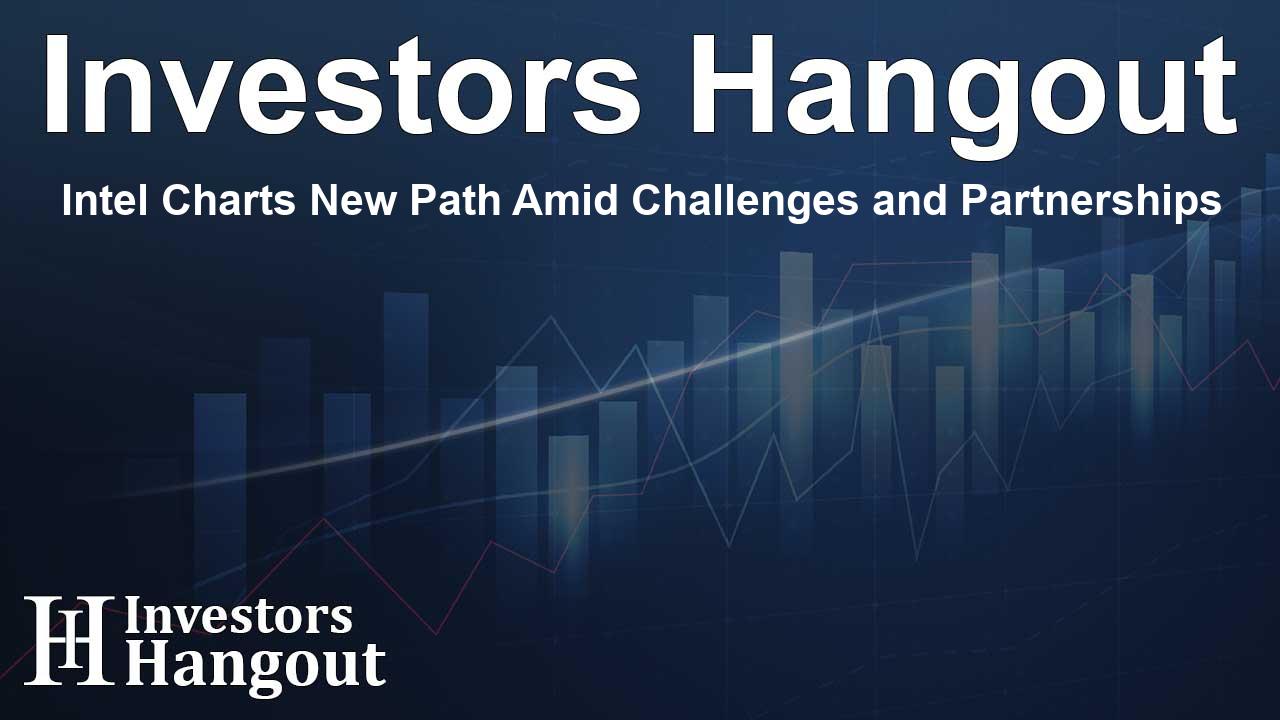Intel Charts New Path Amid Challenges and Partnerships

Intel's Recent Struggles and Opportunities
Intel's recent drop in stock price in August followed disappointing earnings, highlighting ongoing challenges the chipmaker faces. Long celebrated for its dominance in the PC processor market, Intel has seen competitors, particularly fabless firms, gain significant market share. Companies like Advanced Micro Devices have outpaced Intel, and its once-unshakeable position now seems to be at risk.
The company's historical reluctance to adopt riskier strategies prevented it from diversifying beyond its core strengths. This conservative culture resulted in missteps, especially in crucial technology shifts like mobile computing and, more recently, artificial intelligence (AI), where it appears to be lagging.
Compounding issues, Intel's waning reputation among customers is evident. Notably, Apple chose to move away from Intel processors in its Macs after frustrations about performance and innovation. This shift allowed Apple to enhance battery life significantly using chips from Taiwan Semiconductor Manufacturing (TSMC), which could create smaller devices more efficiently.
Furthermore, Intel missed an incredible opportunity in 2017 when it turned down a chance to invest in OpenAI for 15%. The company's former CEO expressed doubts about the market viability of generative AI, which ultimately has proven to be a mistake given the skyrocketing interest and investment in AI technologies today. Intel's tendency to overlook strategic collaborations is alarming, especially when Mega-investors like SoftBank found Intel's chip proposals inadequate for the competitive landscape.
New Developments
While these challenges demonstrate Intel's uphill battle, recent announcements suggest potential turning points. Recently, the company shared news of an expansive partnership with Amazon, which aims to co-develop custom chips, including state-of-the-art AI fabric chips. This partnership marks an important vote of confidence for Intel, reinstating hope amid a turbulent financial landscape.
The partnership includes a long-term commitment to invest in Intel's foundry business. Such collaborations are critical to re-establishing Intel’s credibility in chip manufacturing. The fact that these initiatives began in Ohio, where a significant semiconductor manufacturing plant is slated for construction, is indicative of Intel's efforts to regain footing.
Financial Backing and Strategic Moves
Adding to the positive news, Intel secured $3 billion in funding through the CHIPS Act to support its Secure Enclave program. This funding, aimed at bolstering the production capabilities necessary for national security, illuminates the importance the federal government places on domestic manufacturing.
Coupled with plans to invest $8.5 billion more from the CHIPS Act for overall manufacturing improvements, these funds present a lifeline for Intel as it grapples with mounting financial losses in its foundry operations.
The Road Ahead for Intel
As the chip industry continues to grow, the imperative for Intel to adapt has never been more urgent. Internal changes—most notably a needed cultural overhaul that prioritizes innovation—are crucial to its future success. The recent resignation of director Lip-Bu Tan signals a deeper struggle with the bureaucracy and stagnation that has hindered new developments at the company.
Although the recent announcements provide a glimmer of hope, it’s essential that Intel not just relies on these partnerships as a stopgap. Investors are cautiously optimistic, yet meaningful and sustained improvements are necessary for long-term recovery. If Intel can successfully navigate these shifts and continue to highlight achievements in its foundry operations, there’s potential for the stock price to rebound significantly.
Is Now the Time to Invest in Intel?
Before investing in Intel, it's important to evaluate the current market conditions and company strategies. Despite securing favorable partnerships and significant funding, potential investors should remain informed about the overall direction of the company. Intel has seen better days, and while there may be indications of improvement, the chip industry's challenges remain formidable.
Many analysts suggest considering broader market trends and other tech advancements when looking at Intel's stock. While the latest developments are promising, thorough research is crucial for anyone thinking about entering this segment of the market.
Frequently Asked Questions
What recent partnerships has Intel established?
Intel expanded its partnership with Amazon to co-develop custom chips, including AI fabric chips, signaling renewed confidence in its foundry business.
What financial support did Intel receive?
Intel was awarded $3 billion from the CHIPS Act to support its Secure Enclave program and aims for further funding to boost its manufacturing capabilities.
What challenges has Intel faced in recent years?
Intel has struggled with internal resistance to risk-taking, leading to critical missed opportunities in AI and chip manufacturing, making it hard to compete effectively.
How did investors react to Intel's latest news?
Positive announcements regarding partnerships and funding sparked cautious optimism among investors, although many remain wary of the challenges that lie ahead.
Is Intel a good investment right now?
Investors should conduct thorough research considering Intel's recent announcements and the broader market atmosphere before making investment decisions.
About The Author
Contact Riley Hayes privately here. Or send an email with ATTN: Riley Hayes as the subject to contact@investorshangout.com.
About Investors Hangout
Investors Hangout is a leading online stock forum for financial discussion and learning, offering a wide range of free tools and resources. It draws in traders of all levels, who exchange market knowledge, investigate trading tactics, and keep an eye on industry developments in real time. Featuring financial articles, stock message boards, quotes, charts, company profiles, and live news updates. Through cooperative learning and a wealth of informational resources, it helps users from novices creating their first portfolios to experts honing their techniques. Join Investors Hangout today: https://investorshangout.com/
The content of this article is based on factual, publicly available information and does not represent legal, financial, or investment advice. Investors Hangout does not offer financial advice, and the author is not a licensed financial advisor. Consult a qualified advisor before making any financial or investment decisions based on this article. This article should not be considered advice to purchase, sell, or hold any securities or other investments. If any of the material provided here is inaccurate, please contact us for corrections.
